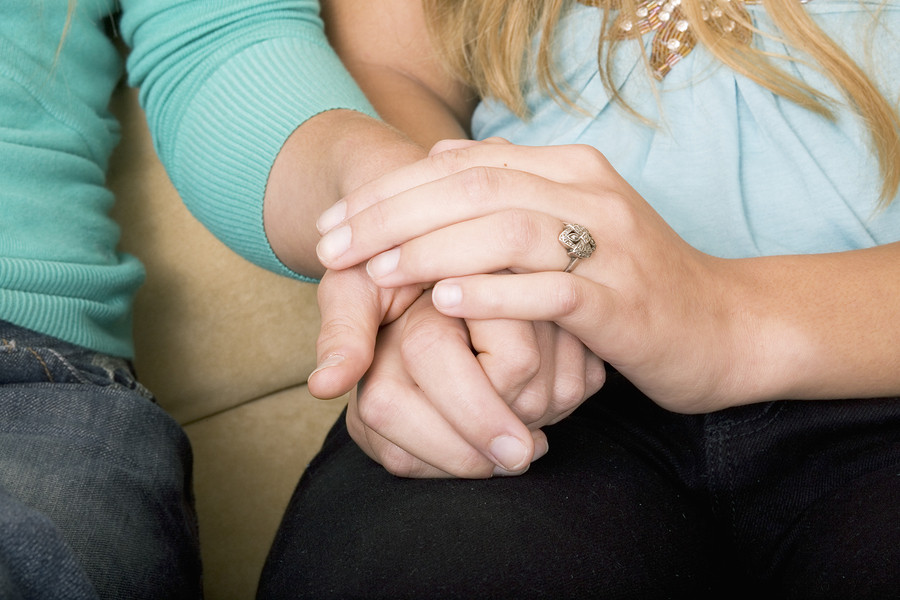
Celiac disease: Exploring four myths

What is prostatitis and how is it treated?

What is Cushing syndrome?

Exercises to relieve joint pain

Think your child has ADHD? What your pediatrician can do

Foam roller: Could you benefit from this massage tool?

Stepping up activity if winter slowed you down

Common causes of cloudy urine

Dragon fruit: How to enjoy this antioxidant-rich fruit

Are you getting health care you don't need?
Stress Archive
Articles
What happens when you faint?
About 1 in 3 people report at least one episode of fainting during their lifetime, so it’s surprising that we don’t see people fainting more often. Fainting is usually harmless, the body’s response to emotional or physical stress. But in some cases, fainting can indicate an underlying problem such as heart abnormalities or seizures. And even when the cause of fainting is not that serious, fainting that leads to a fall can cause injury.
Longer work hours may boost stroke risk
Image: Thinkstock
Research we're watching
People who work long hours may face a higher risk of stroke, according to a study published online Aug. 20, 2015, by Lancet.
Researchers pooled data from 17 studies from the United States, Europe, and Australia that followed more than 528,000 workers for an average of just over seven years. None of the participants had cardiovascular disease when they signed up for the studies.
Easing grief through religion and spirituality
There are many different ways to find comfort when grieving. Some people find that spirituality or organized religion is a source of great solace. Specific rituals and rites — whether sitting shiva, setting up an altar inside your home, or gathering at the cemetery once a year — can draw people together and encourage them to share their grief. Attending religious services can link you with a well-defined community primed to offer help of all sorts. And a kind word, a willing listener, a shared meal, and any number of large and small acts of assistance help keep people afloat and ease their distress after a death.
Religious or spiritual beliefs may also help by lending larger meaning to a loved one's life and death. For some, the belief that a loved one is enjoying the spiritual riches of heaven or preparing for the next turn of the wheel through reincarnation can be comforting. Believing your loved one helps guide you in this world or that you will be reunited in another place after your own death can help you continue to feel connected with the person.
Tests for hidden heart disease
Electrocardiograms, which monitor the heart's electrical patterns, don't reliably reveal the risk of having a heart attack. |
Unless you have symptoms of a heart problem, taking a cautionary look under the hood is unlikely to help—and could even be harmful.
How a sleep shortfall can stress your heart
Getting less than six hours of sleep on a regular basis can boost levels of stress hormones, which can strain your cardiovascular system. |
Find out if your sleeping habits put you at risk—and what to do about it.
Oral appliances may work for mild but not severe sleep apnea
The search for an effective, easy-to-use treatment for sleep apnea has been going on for years. The gold standard is a breathing machine known as continuous positive airway pressure (CPAP). A report published online this week by JAMA Internal Medicine describes a mouth-guard-like device that may work for people with mild sleep apnea, but that may not be much help for those with severe sleep apnea. The 18 million Americans with obstructive sleep apnea sufferers are a powerful incentive for device manufacturers, and there are myriad alternatives to CPAP in the marketplace and under development. Swedish researchers tested a custom-fitted mandibular advancement device among people with self-reported sleep apnea. It worked, but a placebo device worked almost as well.
Tips to avoid caregiver stress
A number of strategies can help lighten the load of caregiving, such as delegating tasks to family and friends, using support services such as respite care, and taking some time for exercise and socializing. Image: Thinkstock |
Stay well when caring for a loved one by maintaining your physical and emotional health. Caring for yourself means you'll be able to care for another.
Lower stress, lower your blood pressure
You can't see your blood pressure or feel it, so you may wonder why this simple reading is so important. The answer is that when blood pressure is high, your heart is working overtime to pump blood through your body. This extra work can result in a weaker heart muscle and potential organ damage down the road. Your arteries also suffer when your blood pressure is high. The relentless pounding of the blood against the arterial walls causes them to become hard and narrow, potentially setting you up for stroke, kidney failure, and cardiovascular disease.
A healthy lifestyle — not smoking, losing excess weight, eating nutritious foods, and exercising regularly — is the cornerstone for preventing and treating hypertension.

Celiac disease: Exploring four myths

What is prostatitis and how is it treated?

What is Cushing syndrome?

Exercises to relieve joint pain

Think your child has ADHD? What your pediatrician can do

Foam roller: Could you benefit from this massage tool?

Stepping up activity if winter slowed you down

Common causes of cloudy urine

Dragon fruit: How to enjoy this antioxidant-rich fruit

Are you getting health care you don't need?
Free Healthbeat Signup
Get the latest in health news delivered to your inbox!
Sign Up











